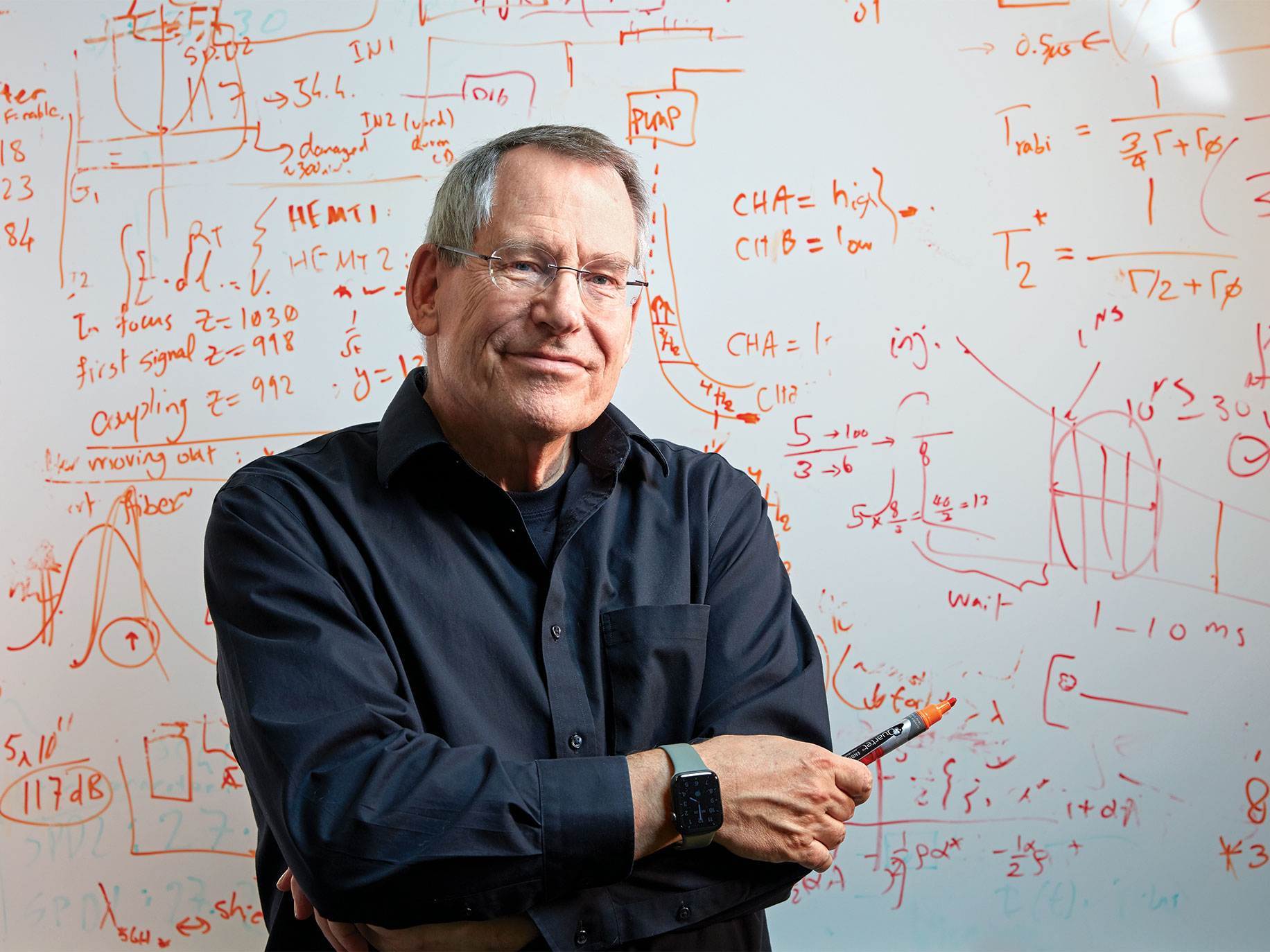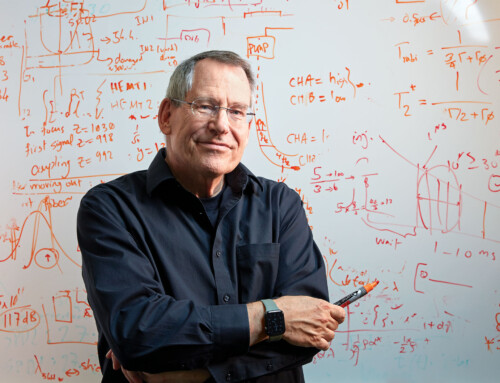Read Alta’s May issue, including “The Most Interesting Machine in the World” by Timothy Ferris. Quantum computing is wild and weird and full of surprises. Tech companies are betting they can harness its potential to replicate nature itself.

Photo: Gregg Segal
Quantum computing—magnificent in conception though embryonic in performance—is being touted as the next great information-technology revolution.
Enthusiasts are predicting that quantum machines will solve problems beyond the reach of conventional computers, transforming everything from medical research to the concepts of space and time.
Meanwhile, the actual quantum computers being tested in university and corporate laboratories are mostly exotic divas that run at temperatures colder than intergalactic space and crash in milliseconds if intruded on by the outside world.
“I worry a lot about the hype,” John Preskill told me recently …
Most such machines are what Preskill calls noisy intermediate-scale quantum systems, or NISQs. They’re “noisy,” he notes, in that researchers “have imperfect control” over their qubits. They’re “intermediate” because properly controlling their 50 or so qubits would produce more power than any existing supercomputer but still fall short of quantum computing’s potential. Until the noise can be significantly reduced, Preskill predicts, “quantum computers with 50 to 100 qubits may be able to perform tasks which surpass the capabilities of today’s classical digital computers but…will not change the world right away.”
Read the full article Magnificent in Conception: the Most Interesting Machine in the World, Timothy Ferris, Altaonline May 18, 2020



